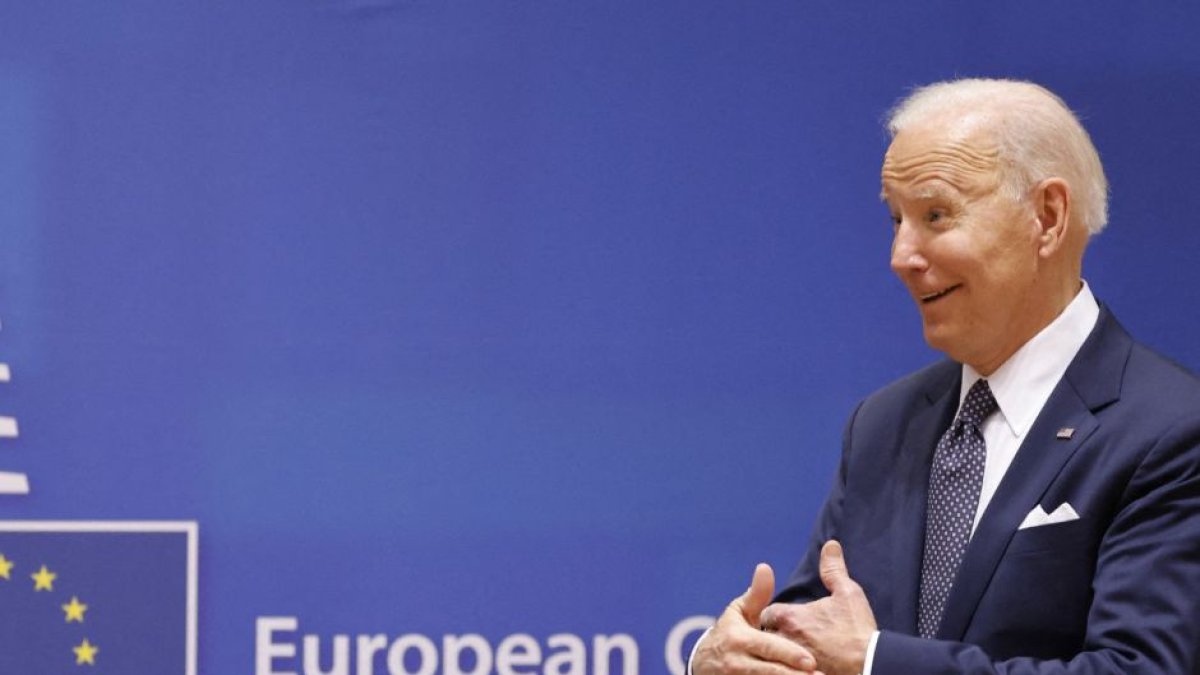Biden halts gas exports to Europe and puts at risk the West's strategy of not depending on Russian energy
Both Democrats and Republicans have expressed concern about the possible negative repercussions of this decision on the country's economy and on relations with European countries.

Joe Biden (Ludovic Marin / AFP)
The Biden Administration halted the granting of permits and the development of new liquefied natural gas projects to Europe under the pretext of addressing the climate crisis. The move comes at a critical time as Europe strives to reduce its dependence on Russian energy sources in a bid to pressure Vladimir Putin's regime in its war against Ukraine.
The White House reported in January that, as part of its climate agenda, it was decided to temporarily pause LNG approvals while the impacts of exports are assessed in terms of "energy costs" and "environmental impacts." However, a recent report by Diego Sánchez de la Cruz for Libre Mercado exposes the risks that this could represent for the United States and Europe.
The measure, justified by the need to evaluate the climate impact of these projects, generates great uncertainty in the energy sector, especially for Europe, which hoped to reduce Russia's economic influence while it is in conflict with Ukraine.
Between 2022 and 2023, the European Union drastically reduced its dependence on Russian gas, going from 41% to 8% of its demand. This would not have been possible without gas exports from the United States. In fact, the U.S. has emerged as the main gas supplier for countries like Spain, whose national demand was covered by 25% by the United States in February 2024.
This also benefited the U.S., causing gas exports to Europe and the United Kingdom to register a spectacular growth of 141% compared to 2021. According to the Libre Mercado report, The United States is selling 60% of its natural gas exports to Europe.
To support this exponential growth, U.S. producers launched new infrastructure projects, such as the Calcasieu Pass 2 (CP2) plant in Louisiana. This facility has the capacity to channel exports equivalent to 5% of the global demand for natural gas, thus marking a milestone in the liquefied gas industry.
However, the Biden Administration's decision could weaken the United States' position as a reliable energy supplier to Europe and negatively affect thousands of jobs in the energy industry.
The report states that Democratic and Republican legislators in the U.S. have already expressed concern about the possible negative repercussions of this decision on the country's economy and relations with Europe.
Likewise, the main companies in the European sector, grouped in the Eurogas association, expressed their concern and urged the U.S. government to avoid an unnecessary ban or limitation on LNG exports.
"If additional US LNG export capacities don't materialise it would risk increasing and prolonging the global supply imbalance. This would inevitably prolong the period of price volatility in Europe and could lead to price increases with the consequent implications that would have for economic turmoil and social impact", the association of European companies warned, highlighting it is essential that the United States support Europe, especially in these times of war.

























